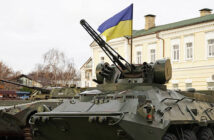“Australia’s future in Asia is firmly grounded in relationships of respect with Washington, Tokyo, Beijing, Jakarta, Seoul and Delhi. We know India’s importance in the Asian Century,” Prime Minister of Australia Julia Gillard, October 17, 2012
“Ethical and responsible behavior needs to become the cornerstone of corporate behaviour” Manmohan Singh, Prime Minister of India, December 14, 2010
Dear Readers,
A great deal of regional security and geo-political activity has been occurring in recent weeks. Notably, the Australian Prime Minister Julia Gillard visited India, declaring India as a key partner country in the region, in addition to the US, Japan, China, Indonesia and South Korea. With Australia scheduled to commence a two year tenure on the UN Security Council in 2013, India will in a sense be passing the baton as its own term concludes next month. For the UN Security Council it is clear that Russia and China must decide if it will lift the veto against taking action in Syria, a situation which is clearly worsening and now impacting Turkey, Lebanon and potentially the entire Middle East. Any major conflict in the Middle East will undoubtedly have a profound impact on the Asia Pacific.
Coinciding with the ever increasing threat of a regional war, Australian Prime Minister has launched the Asian Century White Paper (ACWP), released to provide a policy blueprint across five broad areas of economic reform, skills development, commercial priorities, regional stability and security, and social and cultural links. Australian Defence Minister Stephen Smith advised in a media release that the ACWP “outlines the Government’s national objectives and pathways to building sustainable security in our region, including:
• maintaining a comprehensive approach to security, including through the release of a new Defence White Paper in the first half of 2013;
• promoting cooperative arrangements among major powers in the region including promoting the development of the expanded East Asia Summit as a crucial regional institution;
• working with the United States to ensure it continues to have a strong and consistent presence in the region, including through enhanced practical cooperation between Australia and the United States (US);
• supporting China’s full participation in the region’s strategic, political and economic development;
• Maintain Australia’s strong support for global, regional and bilateral security frameworks and norms based on the United Nations Charter, including through our membership of the UN Security Council; and
• pursuing practical cooperation and building local capability with regional partners across a range of issues such as terrorism, people smuggling, transnational crime, counter-proliferation and disaster management.”
It is interesting to note terrorism remains number one in order of priorities, continuing to be mentioned first over and above transnational organised crime and disaster management, despite these issues being significantly larger in scale and importance.
Terrorism related issues were again highlighted during October, with the ten year anniversary of the 2002 Bali Bombings followed by arrest of eleven Indonesians over a plot to bomb the US Embassy, a Plaza near the Australian Embassy and the offices of a US mining company in Jakarta. Another recent arrest to note is the arrest of an alleged lone wolf, Bangladeshi immigrant who made an extreme attempt to detonate a car bomb in New York. Alongside these events was the overturning of terrorist charges, namely providing a material support for terrorism, against Osama Bin Laden’s former driver, Salim Hamdan, which opens an appeal process for similarly convicted Australian terrorist, David Hicks.
Other trends to monitor include the cyber war underway between Iran, Israel and the US, with China and Russia most likely to be involved to some degree and the Japan – China diplomatic positioning over the Diaoyu islands and their adjacent waters in the East China Sea. Chinese Vice Foreign Minister Zhang Zhijun was quoted to say “The action that Japan might take will shape China’s countermeasures…there is no lack of countermeasures China might take in response.” Following Japan’s purchase of the islands, China sent fishery patrol and marine surveillance vessels to waters near the islets, raising concern that confrontation with Japanese patrol ships could escalate into a broader conflict.
In this issue of our bi-monthly print and monthly e-magazine we feature an interview with Australia’s Counter Terrorism Ambassador H.E. Bill Paterson, with supporting articles addressing cyber supported terrorism, building an effective security program in the Asia Pacific and the latest thinking for best practices in hospital security and retail loss prevention. Plus a whole lot more.
Stay tuned with us as we continue to explore, educate, entertain and most importantly, engage. I look forward to hearing from you and encourage to connect with us and retain My Security Media as your personal professional library, willing to listen and accessible anytime, anywhere.
Yours sincerely,
Chris Cubbage
APSM Executive Editor
NEXT ISSUE HIGHLIGHTS
- Feature interview with Australian Federal Police (AFP) Assistant Commissioner Mandy Newton, who heads the AFP’s prestigious International Deployment Group.
- Case Management In The Custodial Setting
- The ‘Security – Safety’ Cross Over
- Combating Cyber Supported Terrorism – Part 2





